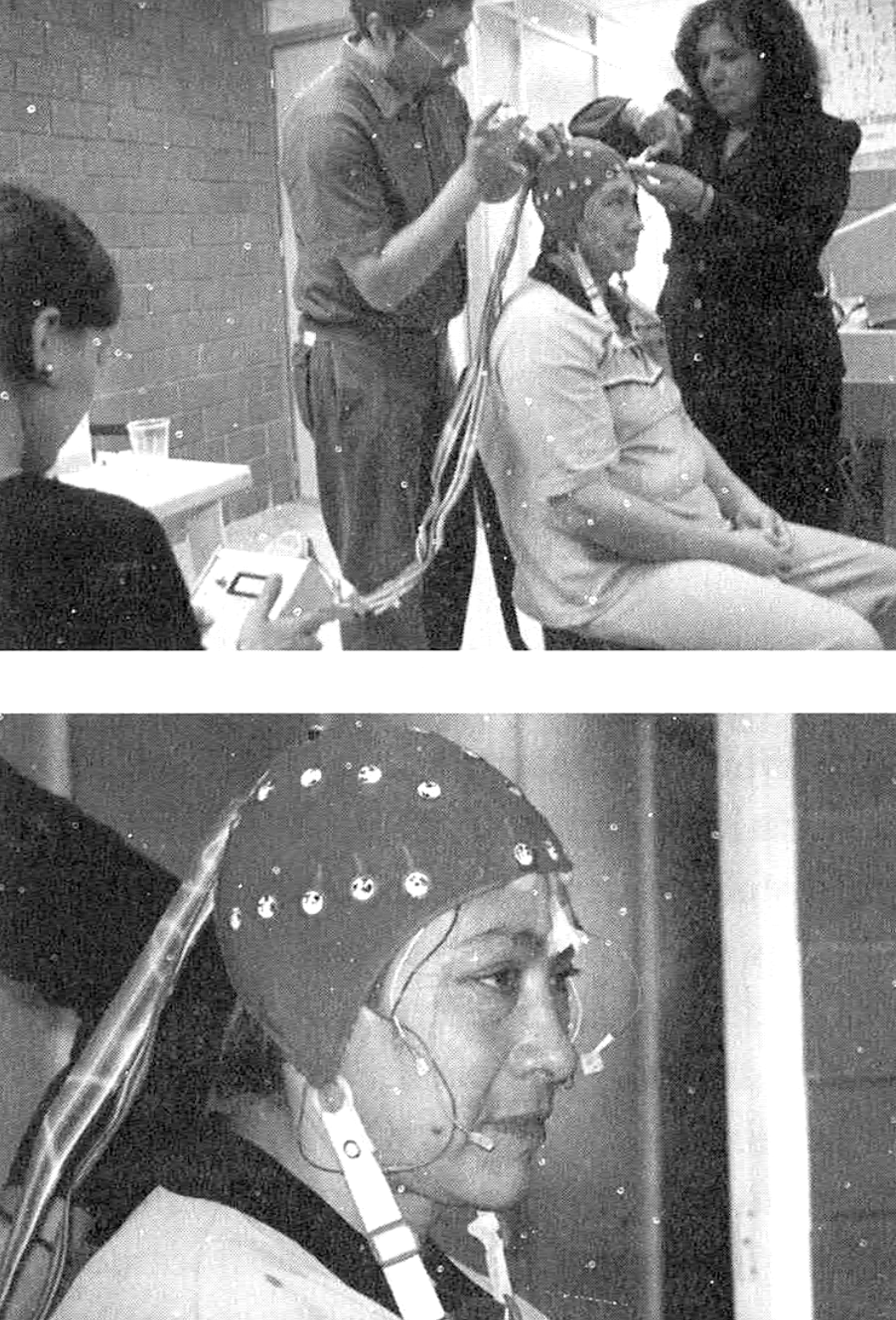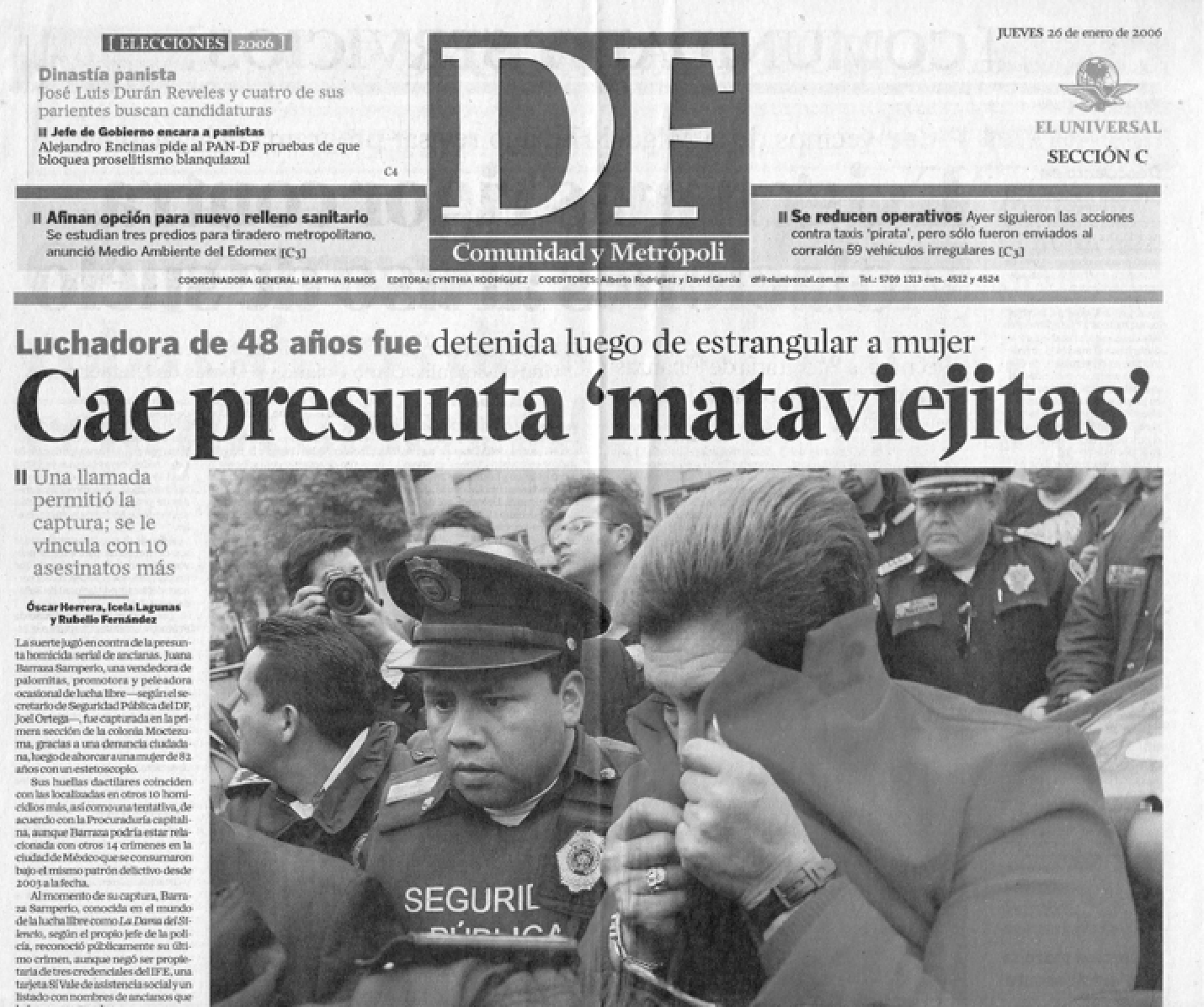THE LITTLE OLD LADY KILLER
The Sensationalized Crimes of Mexico’s First Female Serial Killer
NYU PRESS 2019
In the Alternative Criminology series
︎ GET BOOK HERE!

“This brilliant mixed-genre meditation on the life and crimes of Juana Barraza combines the pulse of true crime, a picaresque cast of historical characters, the contextual nuance of cultural history, the sophistication of queer theory, and disturbing new insights into Mexican identity and its complicated relationship with human mortality. A (trans)historical achievement of the highest order.”
Robert Marshall Buffington, author of A Sentimental Education for the Working Man: The Mexico City Penny Press, 1900-1910
REVIEWS ︎
︎ Smith, Chris. M. “The Little Old Lady Killer: The Sensationalized Crimes of Mexico’s First Female Serial Killer. Susana Vargas Cervantes. New York University Press.” Signs: Jounal of Women in Culture and Society 47 (2), Winter 2022.
︎Van Bavel, Marjolein. “Book Review: Susana Vargas Cervantes, The Little Old Lady Killer: The Sensationalized Crimes of Mexico’s First Female Serial Killer.” Crime, Media, Culture, 17 (2): 289-290. December 2019.
︎Estevez, Ariadna. “El derecho a la violencia de las mujeres.” Unam Global, Agosto 2019.
PRESS ︎
︎BBC NEWS MUNDO
La mataviejitas: "Lo que descubrí cuando investigué el caso de la asesina que recibió la condena más larga de la historia de México"
Jose Carlos cueto
[May 14, 2021]
︎EL PAIS
La Mataviejitas, ¿asesina o victima?
Elena Reina
[ Abril 25, 2021]
︎CRIMINAL BROADS PODCAST
Silent Lady: Juana Barraza
[ January 2021 ]
︎THIS IS NOT A PIPE PODCAST
Susana Vargas Cervantes: The Little Old Lady Killer
[ January 2020 ]
︎CBS WHY WOMEN KILL
The Blood Thirsy Babe
[ October 2019 ]
︎CBS INSIDE EDITION
The Strange Saga of Juana Barraza, a Female Wrestler and Mexico's 'Little Old Lady Killer
[ October 2019 ]
︎SLAM MAGAZINE, Melissa Hemmings
Lucha libre killer makes for captivating reading
[ October 2019 ]
︎THE SERIAL KILLER PODCAST
Interview
[ September 2019 ]
“Focusing on a case that challenged what Mexicans thought they knew about crime, Vargas examines performance, images, media languages and expert discourses, and uncovers their racist and machista premises. Her criticism is original but also urgently needed, as we see how the neglect of certain victims and the criminalization of those who do not conform to gender norms contribute to the dehumanizing levels of violence that Mexico is witnessing today.”
Pablo Piccato, author of A History of Infamy: Crime, Truth, and Justice in Mexico





